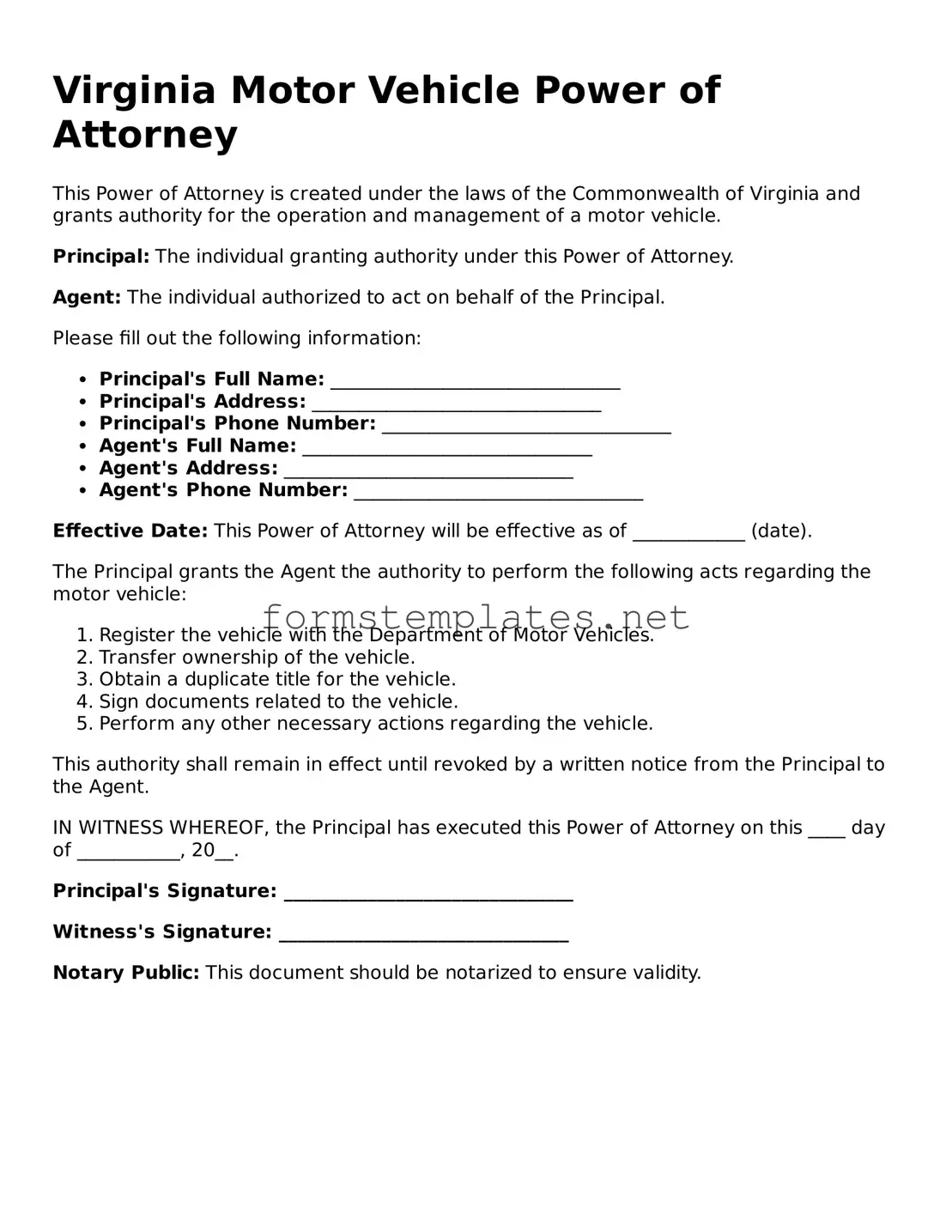Attorney-Approved Virginia Motor Vehicle Power of Attorney Template
The Virginia Motor Vehicle Power of Attorney form is a legal document that allows an individual to designate another person to act on their behalf in matters related to motor vehicles. This form is essential for facilitating transactions such as the sale, transfer, or registration of a vehicle. By granting this authority, the principal ensures that their interests are represented effectively and efficiently.
Open Editor Now

Attorney-Approved Virginia Motor Vehicle Power of Attorney Template
Open Editor Now

Open Editor Now
or
⇓ PDF Form
Your form still needs attention
Finalize Motor Vehicle Power of Attorney online — simple edits, saving, and download.